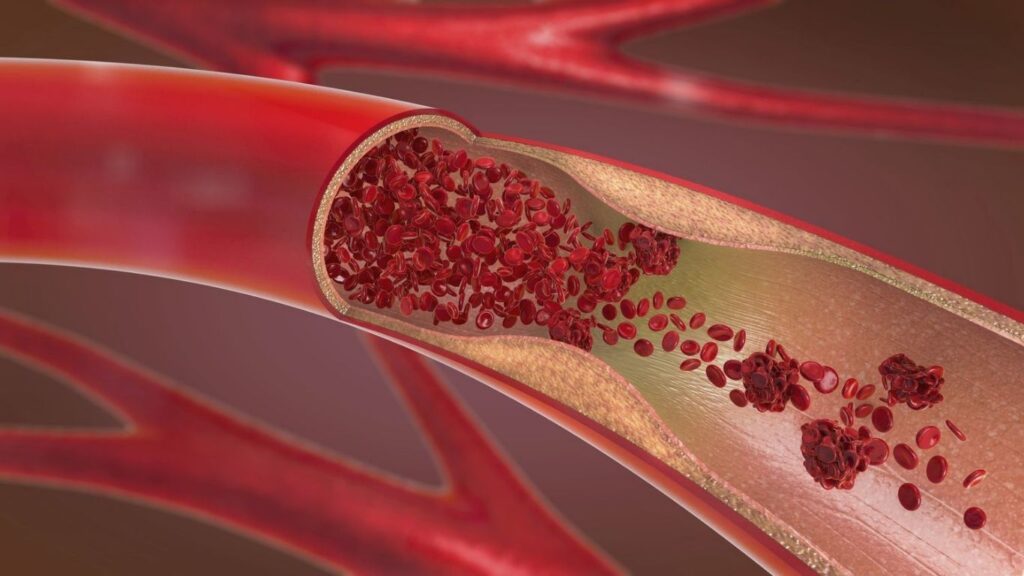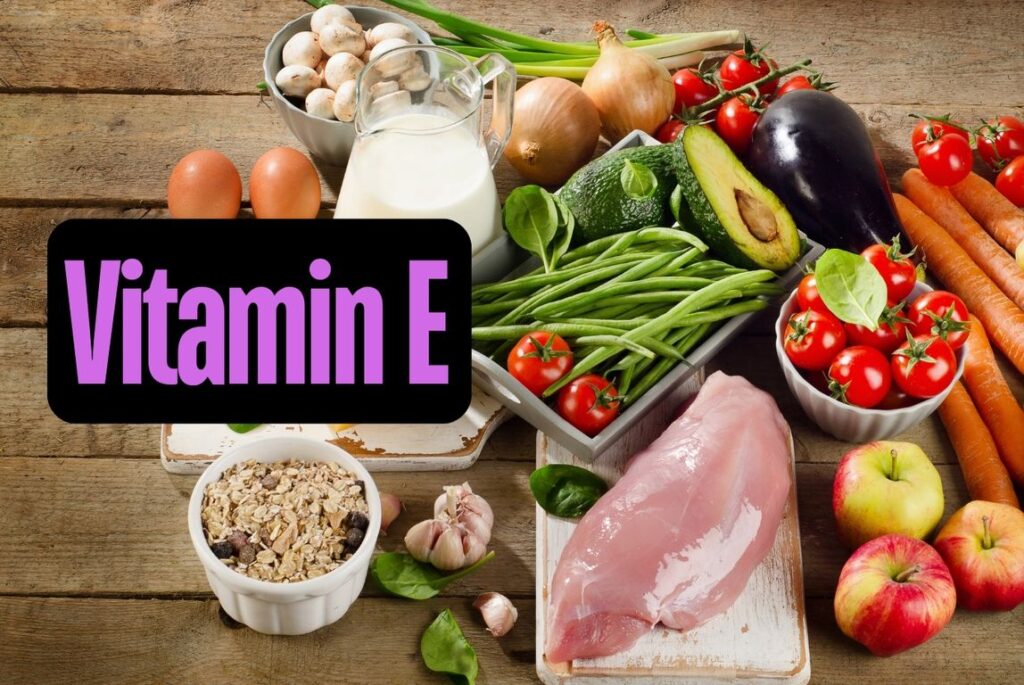Heart health is a significant concern worldwide, with cardiovascular diseases being the leading cause of death in many countries. As more people become aware of the importance of maintaining a healthy heart, they are increasingly looking towards natural methods to support cardiovascular function. One such method involves the inclusion of essential nutrients in their diet, and Vitamin E is often at the forefront of this discussion. Known for its antioxidant properties, Vitamin E plays a crucial role in protecting the heart and reducing the risk of cardiovascular diseases. This blog will explore the relationship between Vitamin E and heart health, highlighting its benefits and how it can be incorporated into a heart-healthy lifestyle.
Vitamin E and Heart Health: Exploring Its Benefits in Reducing Cardiovascular Risk
Understanding Vitamin E
Vitamin E is a fat-soluble nutrient that functions primarily as an antioxidant. It exists in eight different forms, with alpha-tocopherol being the most active form in the human body. As an antioxidant, Vitamin E helps combat oxidative stress by neutralizing free radicals—unstable molecules that can damage cells and contribute to the development of chronic diseases, including heart disease.
The Role of Vitamin E in Heart Health
Antioxidant Protection
The primary role of Vitamin E in heart health is its antioxidant capability. The heart, like other organs, is susceptible to oxidative stress, which can lead to the oxidation of low-density lipoprotein (LDL) cholesterol. Oxidized LDL cholesterol is a key factor in the formation of plaque in the arteries, a process known as atherosclerosis. This plaque buildup can lead to the narrowing and hardening of the arteries, increasing the risk of heart attacks and strokes. By neutralizing free radicals, Vitamin E helps prevent the oxidation of LDL cholesterol, thereby reducing the risk of atherosclerosis and other cardiovascular issues.
Anti-Inflammatory Effects
Inflammation plays a critical role in the development of cardiovascular diseases. Chronic inflammation can damage the arteries, contributing to the formation of plaque and the narrowing of blood vessels. Vitamin E has been shown to have anti-inflammatory properties, which can help reduce inflammation in the cardiovascular system. By mitigating inflammation, Vitamin E helps maintain healthy blood vessels and reduces the risk of heart disease.
Improvement of Endothelial Function

The endothelium is a thin layer of cells that lines the blood vessels, playing a vital role in maintaining vascular health. Dysfunction of the endothelium is a significant factor in the development of cardiovascular diseases. Vitamin E contributes to the improvement of endothelial function by enhancing the production of nitric oxide, a molecule that helps blood vessels relax and widen, improving blood flow and reducing blood pressure. Better endothelial function is associated with a lower risk of heart attacks and strokes.
Inhibition of Platelet Aggregation
Platelets are small blood cells that play a crucial role in blood clotting. While clotting is essential to prevent excessive bleeding, excessive platelet aggregation can lead to the formation of clots within the arteries, potentially causing heart attacks or strokes. Vitamin E has been found to inhibit platelet aggregation, reducing the likelihood of blood clot formation. This anticoagulant effect is another way Vitamin E contributes to cardiovascular health.
Research on Vitamin E and Cardiovascular Health
The relationship between Vitamin E and heart health has been the subject of numerous studies over the years. Some research has shown promising results, while others have been inconclusive or even contradictory.
Positive Findings
Several observational studies have suggested that higher intake of Vitamin E is associated with a reduced risk of coronary heart disease. For example, a study published in the Journal of the American Medical Association found that women with higher Vitamin E intake had a significantly lower risk of heart disease compared to those with lower intake. Another study published in The Lancet showed that people who took Vitamin E supplements had a lower risk of developing coronary artery disease.
Mixed Results in Clinical Trials
Despite positive findings in observational studies, randomized controlled trials (RCTs) have produced mixed results. Some RCTs have shown that Vitamin E supplementation does not significantly reduce the risk of cardiovascular events. For instance, the Heart Outcomes Prevention Evaluation (HOPE) study did not find a significant reduction in cardiovascular events among patients taking Vitamin E supplements. These mixed results have led to ongoing debates in the scientific community about the efficacy of Vitamin E in preventing heart disease.
Understanding the Discrepancies
The discrepancies between observational studies and RCTs could be due to several factors. Observational studies often reflect real-world dietary patterns, where Vitamin E intake comes from natural food sources along with other beneficial nutrients. In contrast, RCTs typically involve high doses of isolated Vitamin E supplements, which may not have the same effects as obtaining Vitamin E through a balanced diet. Additionally, the population studied, the dosage of Vitamin E used, and the duration of the studies may all influence the outcomes.
How to Incorporate Vitamin E into Your Diet
To reap the potential heart health benefits of Vitamin E, it’s essential to incorporate it into your diet through natural food sources rather than relying solely on supplements. Here are some excellent sources of Vitamin E:

- Nuts and Seeds: Almonds, sunflower seeds, and hazelnuts are among the richest sources of Vitamin E. Just a handful of these can provide a significant portion of your daily Vitamin E requirement.
- Vegetable Oils: Wheat germ oil, sunflower oil, and safflower oil are excellent sources of Vitamin E. These oils can be used in cooking or as a dressing for salads.
- Leafy Greens: Spinach, kale, and Swiss chard are good sources of Vitamin E. Incorporating these greens into your meals not only boosts your Vitamin E intake but also provides a host of other essential nutrients.
- Fortified Foods: Some cereals, juices, and margarine are fortified with Vitamin E. These can be a convenient way to ensure you are meeting your daily requirements.
- Avocados: Avocados are not only a delicious addition to your diet but also a good source of Vitamin E. They can be added to salads, smoothies, or enjoyed on their own.
Conclusion
Vitamin E plays a multifaceted role in supporting heart health, from its antioxidant properties to its ability to reduce inflammation, improve endothelial function, and inhibit platelet aggregation. While research findings on its efficacy in reducing cardiovascular risk are mixed, incorporating natural sources of Vitamin E into your diet can be a heart-healthy choice. As with any nutrient, it is best to obtain Vitamin E from a balanced diet rich in whole foods rather than relying solely on supplements. By doing so, you can enjoy the potential heart-protective benefits of Vitamin E while also nourishing your body with a variety of other essential nutrients.
While Vitamin E alone may not be a magic bullet for preventing heart disease, it is an important component of a heart-healthy lifestyle that includes a balanced diet, regular exercise, and other healthy habits. If you are considering taking Vitamin E supplements, it is advisable to consult with a healthcare professional to ensure they are appropriate for your individual health needs.
Also read: A Trio of Superfruits: Kiwi, Apple, and Pomegranate for Heart Health
